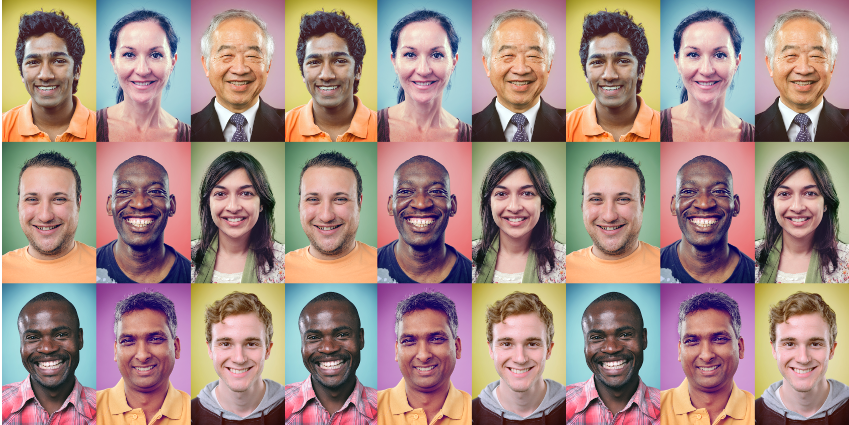
During the last six months, we have seen an increase in racial violence. After what seems like endless shootings and subsequent riots, the uncomfortable truth about American’s current racial climate is unfolding and growing deeper.
Black people have solidified their sentiments and have been righteously vocalizing their concerns and incremental fears. White people, in response, have acknowledged their burdens, and are tuning out due to their own discomfort, or have outright rejected the presence of racism. The more I keep up with this conversation, the more I begin to wonder if my identity prescribes me to feel a certain way.
While I definitely recognize the pervasiveness of racism—and have even felt it to a degree myself—I can’t help but feel I should not touch certain topics because as a South Asian, do I even have a right to vocalize opinions or solidarity on the topic of today’s racism? Is it a conversation that is—no pun intended—strictly black and white?
My self-probing started two months ago in a quaint Brooklyn performance venue that held a lecture series so aptly titled, “Do white people deserve Kanye West?”
I was into my second week of interning with a digital magazine championing the presence of diversity, and I was hungry to pitch stories that broadened the realm of conventional tactics against racism. I didn’t want news; I wanted narratives. So I hopped out of bed early on a Saturday morning and got on the subway to Brooklyn.
The venue was filled primarily with white and black people, actually there was an even presence of both. It took place within a few days of the Charleston shooting and I felt cognizant of a divide between the races, even before the show started.
[Read Related: Sikh Americans Mourn in Wake of Charleston Tragedy Prompted by Hate]
A few minutes later, a white comedian opened the show and warmed up the crowd by gushing his love for Kanye, he introduced the first speaker, a black journalist. When the journalist took the stage, I immediately noticed a stark difference in both speeches. The white comic’s love for Kanye didn’t stretch beyond appreciation for his music, whereas the black journalist’s possessed more of an aching solidarity with the artist.
To him, Kanye was more than music; he was a symbol of racial triumph. He was a black man who had started with the meager opportunities tragically afforded to this country’s black population, but he fought the odds with rigor and vigor, and through his power, music and courage he elevated to a state of holiness—above all people of all races—Yeezus. The narratives between the white and black men were startlingly different. Yet, Kanye was the great equalizer.
I found that paradoxically, discussions and debates surrounding modern American racism have created an even larger divide between the country’s black and white population.
The black journalist was addressing Kanye’s “Graduation” album when he asked the crowd if there were any college graduates seated amongst them. Several people raised their hand, then he asked, who OF COLOR in the audience is a college graduate. Several white hands shot down while a few black hands remained proudly in the air. My hand instinctively begin to lower, because I’m not black.
But, I’m also not white. Am I a “person of color?” Am I “non-white?”
I’ve been spending the past few days figuring out how to—as an Indian—absorb America’s current racial climate. My inquiries don’t center on a motive to detour the conversations to my race, rather I want to know where I stand. It’s a travesty how rampant racism continues to be, but an unintended byproduct of this conversation is how conscious I’ve become of races altogether.
My friends who are black have become my “black friends.” Our conversations are lately not without an elephant in the room making me think twice about anything I say, out of fear the white frame of reference that’s so prevalent in our lives might invoke something that accidentally harms.
So where exactly do we, as South Asians, stand? And with whom?
Something that has always befuddled me is how prevalent black culture is among Indian-Americans. I have Indian friends who primarily listen to hip-hop and have effortlessly absorbed black vernacular—even to the point where men greet each other with the N-word. (Sorry guys, I’m going to rat you out. It’s weird and you know it.) Men consistently dress in baggy clothing and worship snapbacks and hip-hop like they own it.
And, if you happen to be an Indian whose colloquialisms aren’t riddled with “sup” and “bitches,” and substituting “I be” for “I am;” or if you happen to listen to Modest Mouse or Coldplay; or if you think Ezra Koenig is hotter than Trey Songz, you’re automatically labeled as white.
“Your music is so white, and you dress so white.” Funny enough, these Indians don’t identify themselves as black. It’s ingrained in their upbringing. And I have a theory on why this inexplicable solidarity exists. I think it’s somewhat akin to the one the black journalist felt with Kanye.
When we Indians or our parents moved to America, we were immediately ostracized. I remember outright lying in elementary school about being half white because I thought I’d make more friends that way. Living in a country where we were quickly shunned by an overbearingly dominant culture, we felt small. We ditched our customs, abandoned our culture out of childish embarrassment, and latched onto developing different identities. And for many of us, we latched on to the other minority: black people.
Black people are everywhere in mainstream media. They dominate the entertainment industry when films and music were our primary outlet to assimilation in America. At a time in our impressionable childhood lives, Aaliyah was ruling the airwaves, Eddie Murphy was starring in movies with humor able to transcend racial bounds, and Beyonce was as omnipotent as she continues to be today. We saw black people kicking ass at being a minority, so we thought, let’s do it like they do.
Again, just a theory. Now back to the racism.
The divide between blacks and whites forces us to pick sides all over again. And their dominance has many of us questioning our own identities. In our rush to pick sides, we’re feeling forgotten.
In an essence, we’re losing grasp of our own identities and categorizing ourselves and our friends as “acting black” or “acting white.” Without knowing it, we’re a part of the divide.
We are all affected by this. And we should all be aware of it.
We should be aware because even though South Asians are not part of the current racial conversation, we’ve faced levels of racism all our lives. It’s there, when we, a nation of one billion, are stereotyped as collectively stinky. It’s there when a kid starves himself in a cafeteria out of fear that someone will laugh at his food. It’s there when a student hates herself for an average GPA because we’re “supposed to be” the smart ones.
Racism forces us to remove our turbans and hijabs because “we shouldn’t bring attention to ourselves.” It’s there when we get random checks at the airport because our darker pigmentation supposedly makes us prone to blow up a plane.
Our struggles are very, very different. But they exist.
And we are not alone. Asian-Americans, Latinos, and various other races are prey to the seemingly immortal beast that is American institutionalized racism. I think many of us are afraid to speak up because we are not the ones who have been mercilessly murdered in churches or manhandled by the police. But racism doesn’t discriminate—all minorities have faced their share of hate, though on a different battleground.
In terms of how to absorb all of this, I say it isn’t a matter of us versus them.
Ferguson, Baltimore, Charleston, Sandra Bland, Sam Dubose, and the various other black victims are not “black problems.” It’s all of our battles, whether we’re Indian or black or white. This is acknowledging and fighting a culture that breeds hatred— the same hatred that inspired Dylann Roof. Black people shouldn’t be the only ones voicing justice for their rights and your skin pigmentation definitely isn’t directly correlated with your responsibilities.
[Read Related: What the Events at Ferguson Mean to Other Young People of Color]
I’ve heard black artists such as Kanye wonder time and again of their race’s fate, but if only we lived in a world white people loved black people as much as they loved their culture.
And for many us South Asians who have integrated so much of the black culture into our own, we should not stand idly as the tragedies keep piling.
This is not an “us vs. them” nor is it antagonizing white people—both stances would completely miss the goal of not just assimilation, but appreciation.
Post as much as possible on social media, engage in activism, and tell a friend we all stand together in integration. The conversation isn’t black and white, and neither are the people affected by it.
 Nikita Redkar is a freelance writer in New York City who currently interns for Fusion Network where she writes about diversity in pop culture and how it’s shifting the current landscape of racial and gender politics. When she’s not writing, she is taking classes in sketch comedy and reading bizarre astronomy theories. She likes cute animal gifs and dislikes long walks on the beach, plagues, and other cliches.
Nikita Redkar is a freelance writer in New York City who currently interns for Fusion Network where she writes about diversity in pop culture and how it’s shifting the current landscape of racial and gender politics. When she’s not writing, she is taking classes in sketch comedy and reading bizarre astronomy theories. She likes cute animal gifs and dislikes long walks on the beach, plagues, and other cliches.




